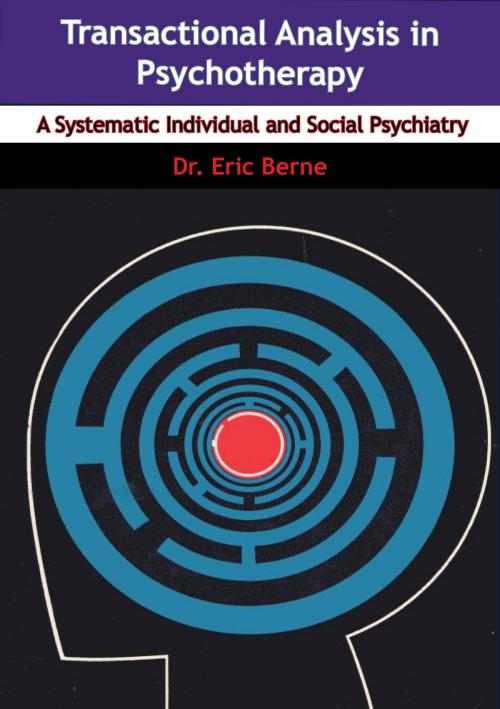Transactional Analysis in Psychotherapy
A Systematic Individual and Social Psychiatry
Nonfiction, Health & Well Being, Psychology, Occupational & Industrial Psychology, Mental Health| Author: | Dr. Eric Berne | ISBN: | 9781787200692 |
| Publisher: | Hauraki Publishing | Publication: | August 9, 2016 |
| Imprint: | Hauraki Publishing | Language: | English |
| Author: | Dr. Eric Berne |
| ISBN: | 9781787200692 |
| Publisher: | Hauraki Publishing |
| Publication: | August 9, 2016 |
| Imprint: | Hauraki Publishing |
| Language: | English |
Originally published in 1961, this book outlines a new, unified system of individual and social psychiatry that were introduced in the United States around that time with remarkable success in various hospitals and other psychiatric establishments. Essentially designed for group therapy, this approach is now used by institutions, group workers, and in private practice with neurotics, psychotics, sexual psychopaths, psychosomatic cases, and adolescents.
Transactional analysis begins its program by initiating the individual patients into the theory upon which the treatment is based. First attaining a measure of self-knowledge through private sessions with the analyst, the patient then meets with other patients in group therapy, participating in a series of personally meaningful relation-ships in which he becomes increasingly aware of the cause and nature of his illness, preparing at the same time to overcome it.
“A comprehensive method of treatment that has no precedent in its concreteness of structure without at the same time diminishing the dynamic quality of the treatment....No one to my knowledge has presented such a new approach.”—Dr. Milton Schwebel, Professor of Education, New York University
Originally published in 1961, this book outlines a new, unified system of individual and social psychiatry that were introduced in the United States around that time with remarkable success in various hospitals and other psychiatric establishments. Essentially designed for group therapy, this approach is now used by institutions, group workers, and in private practice with neurotics, psychotics, sexual psychopaths, psychosomatic cases, and adolescents.
Transactional analysis begins its program by initiating the individual patients into the theory upon which the treatment is based. First attaining a measure of self-knowledge through private sessions with the analyst, the patient then meets with other patients in group therapy, participating in a series of personally meaningful relation-ships in which he becomes increasingly aware of the cause and nature of his illness, preparing at the same time to overcome it.
“A comprehensive method of treatment that has no precedent in its concreteness of structure without at the same time diminishing the dynamic quality of the treatment....No one to my knowledge has presented such a new approach.”—Dr. Milton Schwebel, Professor of Education, New York University


![Cover of the book Living Zen [Second Edition] by Dr. Eric Berne](https://www.kuoky.com/images/2016/october/300x300/9781787201118-CGEW_300x.jpg)












